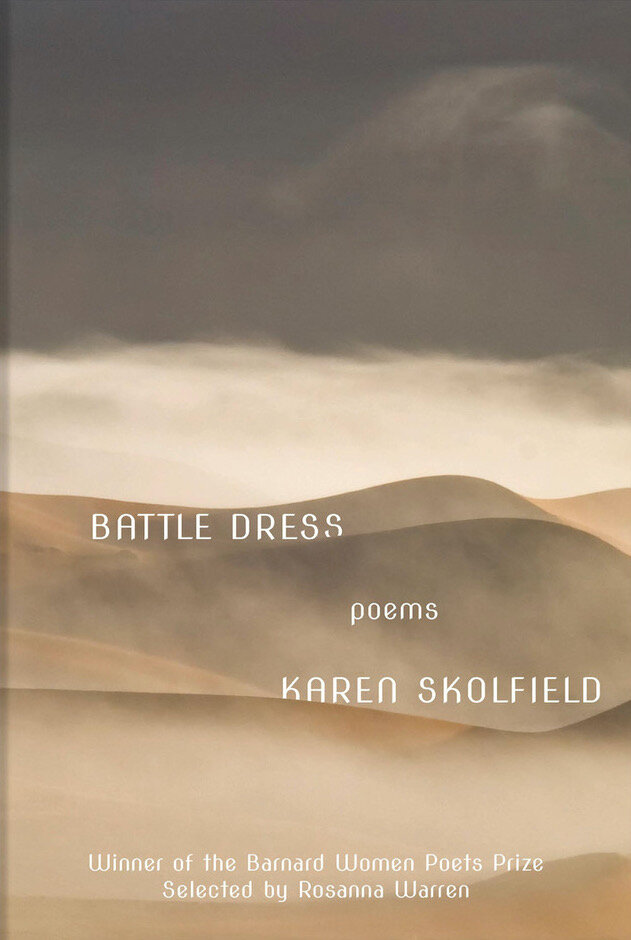When did you first encounter poetry? How did you discover that you wanted to write poems?
I read dead poets and wrote a lot of blushingly bad poetry on a manual typewriter in high school, and then in college I lucked into a series of poetry classes with Chris Buckley and his open-hearted, enthusiastic workshops; he loved Nazim Hikmet and Phil Levine and so I did too and still do. Reading and classes over those years was a series of revelations, I-didn’t-know-you-could-do-that moments with endings, structures, the pinwheeling of language, line breaks with meaning, imagery, subjects I’d thought were either too terrifying or mundane to approach.
Writing is so crazy hard – I know that’s not a surprise to anyone, but it was a surprise to me. I breezed through high school; I performed well enough on those old career tests that my guidance counselor cheerfully told me I could do anything I wanted, and he then looked surprised at how crestfallen I was. I’d thought those tests, and the armed services tests I took later, would show my one path. Instead, like pretty much everyone, I had to figure out the intersection of what I was good at, what I was challenged by, and what I loved. That took some years, plus a detour for the military, before I arrived at writing poetry.
I love it, though. I love how hard writing is. You climb, you climb, and then the trees give way to the view.
Do you have a writing routine? A favorite time or place to write?
This question makes me so twitchy, because… I don’t have a writing routine, although there are elements that hold (mid-morning, certain tables in certain coffee shops, writing buddies, writing retreats when possible). But I’m a bursty writer – I write a lot when I’m not teaching and very little when I am. The “not writing” also corresponds neatly to my kids’ sports seasons.
I envy writers who write steadily and often, even every day. I’ve never managed that for more than a month or two at a time. I’m jealous of very little – yay, other people winning awards and publishing & etc., let’s go! But writers who write on the regular… that gets me, deep down where I’m most insecure.
Where do your poems most often “come from”—an image, a sound, a phrase, an idea?
Poem genesis is divided pretty evenly between a funky little phrase running through my head, and research. I love the rabbit hole of research, and it starts with a question about a word’s origin or a scientific phrase or a weird fact.
Which writers (living or dead) have influenced you the most?
Ada Limón, Naomi Shihab Nye, Diane Seuss, Sharon Olds, Ross Gay, Sylvia Plath, Jericho Brown, and if you ask me tomorrow I’ll come up with a different list.
What excites you most about your new collection?
I didn’t think I had it in me to write on a single subject for an entire book, and it turned out I loved the challenge of sustaining a theme and keeping it fresh. And I’m pleased to contribute to the very, very tiny number of female veterans writing and publishing about the military and war.
Sample poem from Battle Dress
Army SMART Book: Inspirational Quotes (1)
“You cannot be disciplined in great things and undisciplined in small things. There is only one sort of discipline – perfect discipline.”
– General George S. Patton, Jr.
“I hate having female recruits,”
Drill Sergeant Robinson told us.
“The males, I can break.
I break them down, build them
back up, then they do anything
for me. Females don’t break.”
The sadness in his voice
made us sad, too. We wanted
to break. Maybe we could fake
being good soldiers.
What would breaking look like,
for the females? Tears
we already knew how to do.
Excerpted from Battle Dress: Poems. Copyright (c) 2019 by Karen Skolfield. Used with permission of the publisher, W. W. Norton & Company, Inc. All rights reserved.
Purchase Battle Dress

Karen Skolfield’s book Battle Dress (W. W. Norton) won the 2020 Massachusetts Book Award in poetry and the Barnard Women Poets Prize. Her book Frost in the Low Areas (Zone 3 Press) won the 2014 PEN New England Award in poetry, and she is the winner of the 2016 Jeffrey E. Smith Editors’ Prize in poetry from The Missouri Review. Skolfield is a U.S. Army veteran and teaches writing to engineers at the University of Massachusetts Amherst; she’s the poet laureate for Northampton, MA for 2019-2022. www.karenskolfield.com
Photo Credit: Paula Champagne
